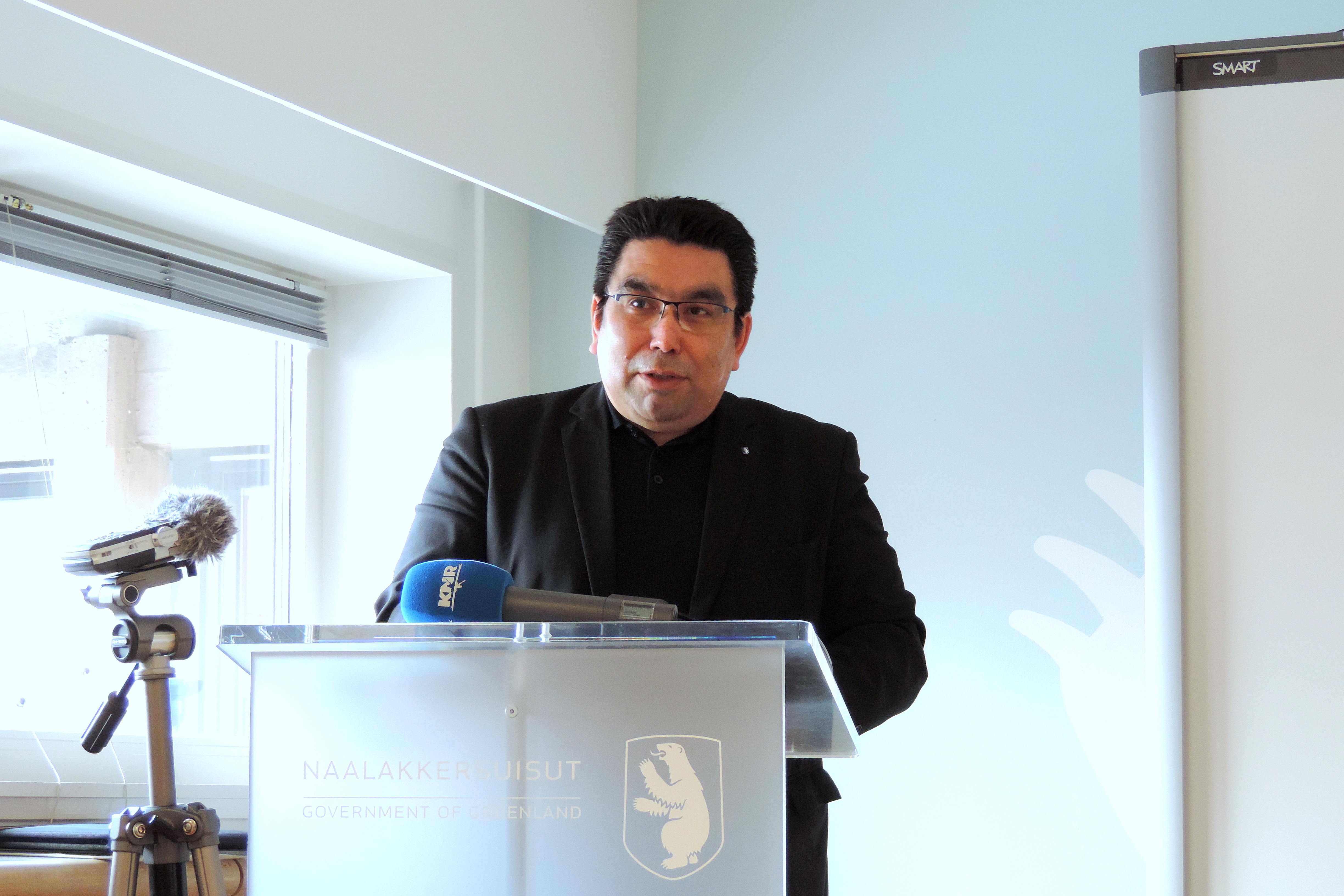The resignation of Greenland’s foreign minister may signal trouble for the premier at home

A simmering power struggle behind the scenes of Siumut, Greenland’s leading political party, has broken out into full-fledged revolt. Vittus Qujaukitsoq, who until Monday had been the country’s efficient foreign minister, withdrew, declaring at the same time that he was prepared to challenge Kim Kielsen, the premier, as party leader.
The break stems from a conflict over Greenland’s relationship to Denmark, a topic that has deeply divided the leading decision-makers in Nuuk. They disagree on how energetically Greenland should be pushing for increased authority over its foreign relations, and how it should continue to pursue independence from Danish subsidies and eventually secession from the Kingdom of Denmark.
Since coming to office in 2014, Kielsen has argued that full independence from Denmark must remain the country’s ultimate political goal, but that it lies at the end of a long road he does not expect Greenland to reach in his lifetime. Most importantly, he maintains, Greenland must prioritize education, job-creation and the many social ills. This is a position he has reiterated with increasing intensity in recent months. Others, including members of his own party, see less need to hesitate.
During the past six months, Qujaukitsoq, for example, has repeatedly taken issue with Denmark on a number of foreign-policy topics and argued for increased Greenlandic powers over foreign policy. Today, he announced that, despite stepping down from the cabinet, he expected to attend the Siumut summer congress, to be held in August, where he would attempt to oust Kielsen.
The Danish media most recently have focussed on Qujaukitsoq’s role in two controversies, both involving America. In December, in an interview with Politiken, a news outlet, he called for the renegotiation of the 1951 agreement between Washington and Copenhagen that gives the United States the right to operate Thule Air Base, in the far northern part of the country.
A renegotiation of this agreement is not on the Danish agenda, particularly not with the Trump administration still settling in. Qujaukitsoq attracted attention for loudly protesting the “out-dated” agreement, and demanding the devolution of more authority to Greenland in foreign-affairs and security issues, two areas that currently remain controlled by Copenhagen.
In the interview, Qujaukitsoq lashed out at an “arrogant” Denmark, unleashing what he described as “75 years of pent up frustration.” With the comments threatening to undermine relations between Nuuk and Copenhagen, Lars Løkke Rasmussen, the Danish PM, appealed to Kielsen to rein in his foreign-policy chief.
The outburst led to calls internally in Siumut for Qujaukitsoq to be removed from the cabinet, since his comments had not been cleared by the premier or others in the government in Nuuk.
This conflict over an interview does not, however, fully explain the latest conflict in Nuuk. Kielsen, was, by and large, in agreement with the criticism of Danish diplomacy. Both Kielsen and Qujaukitsoq, for example, were forced to learn in the media that Rasmussen had, earlier in the year, outmaneuvered a Chinese firm that had wanted to buy a disused naval facility on Greenland’s southwestern coast
Both were also dissatisfied with Danish efforts to address the pollution left behind in Greenland by American forces, as well as the loss of a lucrative tender to provide civilian contracting services at Thule.
Qujaukitsoq and Kielsen have both aired their doubt about whether Copenhagen placed Nuuk’s interests ahead of its own during discussions with Washington over the base.
A cabinet reshuffle in Nuuk eventually led the two men to fall out publicly. Kielsen wanted to take the foreign-affairs portfolio from Qujaukitsoq. Before that happened, he announced on Facebook that his time in the cabinet had come to an end. “I am resigning from my position,” he wrote in an update he punctuated with a smiley, though it was of the sort that showed more chagrin than humour.
Qujaukitsoq, who previously served as finance minister, had appeared to have hit his stride in his current position, which also included labour, trade and commerce in its remit. Though failing to be elected to Inatsisartut, the national assembly, in the 2014 election, he was one of the cabinet’s most dynamic and visible figures. He was also its most widely travelled, attending meetings one week in Anchorage, Beijing the next, to promote his country’s natural resources to mining and oil firms, and its natural beauty to tourism operators.
The foreign affairs portfolio, which includes day-to-day relations with Copenhagen, now passes to Suka K Frederiksen, who since November has served as the country’s first minister for independence. She is primarily responsible for a constitutional commission that has been given three years to write Greenland’s first constitution, a document that many of her compatriots expect will form the cornerstone of the country’s independence.
Frederiksen, a political and foreign-affairs novice, must now also manage a foreign ministry that is pushing hard to open new negotiations over America’s use of Thule Air Base and to expand Nuuk’s control over its external affairs.
The author is a Danish journalist who has written extensively about Arctic issues, including most recently The Greenland Dilemma.